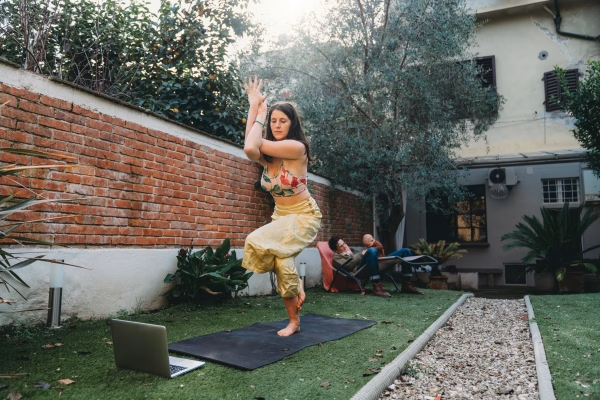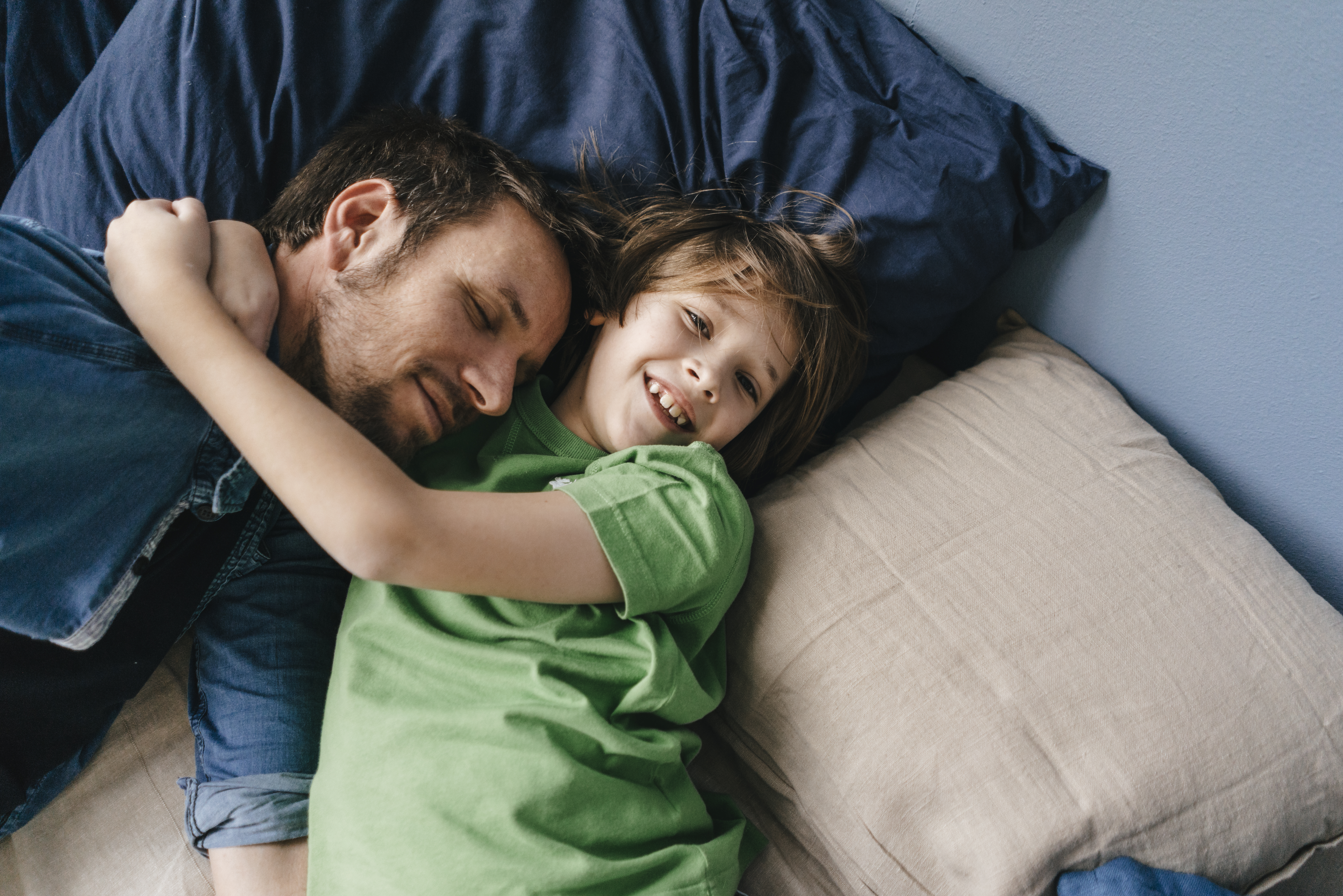nib finds how we measure up, three months on from end of COVID isolation rules

Overall, regular exercise has dropped 11%, to 2.9 days per
week on average, down from 3.3 daysAverage alcohol consumption and rates of ‘unhealthy drinking’ have fallen
12% drop in the number of drinks consumed per week
People feel less rested and get fewer hours of sleep each
night18-25 year-olds bucked trends: sharp rise in drinking,
steady rates of exercise, and better sleep patterns
Three months on from the lifting of the last vestiges of Australia’s COVID-19 isolation rules, a health survey from nib has found its health insurance and GreenPass members appear to be exercising less, and alcohol consumption is dropping. And while sleep patterns look consistent, they vary across age groups.
Health partner, nib, looked at the habits of more than 8,000 people between July 2021 and November 2022, using its HealthCheck survey. An additional 1,500 people were surveyed, three months after COVID-induced restrictions were lifted[1].
Healthy habits among members aged 45+ declined the most when it comes to exercise and sleep. They exercised less, down by 17% per week, dropping from 3.64 to 3.01 days per week. Those aged 36-45 also exercised less, recording a drop of 12% after restrictions ended.
For the younger cohort, Gen Z, who are aged 18 - 25, exercise remained steady at 2.7 days per week.
The data indicates members might find have found it hard to make time to prioritise exercise, once restrictions were lifted, said nib Chief Medical Officer, Dr Rob McGrath.
“During peak lockdown periods across Australia, many people took the opportunity to exercise, in an isolated environment, because they were not travelling to work, or meeting up with friends,” Dr McGrath said. “In Sydney and Melbourne, where Australians experienced lengthy lockdowns, people appear to have used the opportunity to get outdoors.
“The results from our latest survey respondents are beginning to tell a different story.
“Now that restrictions have lifted, people may have started to put their health on the backburner. Days are filled with work, family and social activities that can often shift exercise down on the priority list,” Dr McGrath said.
While members, on average, kept similar sleep patterns (a slight drop from 7 hours to
6.9 hours per night), there was a more obvious decline in feeling ‘well rested’ among those aged 45 years and over (62% compared to 55%). All other age groups reported feeling less rested, except for 18-25 year olds, who reported an increase in feelings of being well rested (from 45% to 48%).
“Adults over the age of 18 should aim for between seven and nine hours of sleep each night,” Dr McGrath said. “But the type of sleep is important. If you’re not getting enough deep sleep, it’s common to not feel rested, which can contribute to poorer health outcomes over the long term.
“Factors like stress, anxiety, and too much caffeine or screentime before bed can affect deep sleep. Setting a good sleep routine, including going to bed at the same time every night, avoiding caffeine or too much alcohol, possibly meditating and setting up your room comfortably can help improve sleep,” Dr McGrath said.
Weekly alcohol intake fell (12% decrease) for respondents in the second survey. Levels of ‘unhealthy drinking’, that is, those who reported alcohol consumption above the Australian Alcohol Guidelines recommendation of no more than 10 standard drinks per week, declined 2%, from 11.7% of the population surveyed, to 9.7%.
Members surveyed aged 36+ reported they drank less. They lowered their alcohol consumption from an average of five standard drinks to four standard drinks per week. The proportion of these members in the unhealthy drinking range also decreased by a quarter (22%), from 15% during the pandemic to 12% of the cohort post-isolation rules lifting.
While rates of unhealthy drinking fell among older age groups, rates of unhealthy drinking increased significantly in the 18 – 25 year old cohort. Alcohol consumption increased by 25% in this group, from an average of 2.5 to 3.1 standard drinks per week. Levels of unhealthy drinking remained lower than the rest of the population, however they were the only group to see an increase in rates of unhealthy drinking, at an increase of 66% (from 4.5% to 7.5%).
“Our data shows some obvious trends between young people and their drinking behaviours. The lifting of restrictions has coincided with the holiday season, so young people may have been getting out more and making up for lost time, which may lead to greater alcohol consumption,” Dr McGrath said.
Dr McGrath said respondents who completed the nib HealthCheck survey were given recommendations to improve their habits, based on the Royal Australian College of General Practitioners’ Guidelines for Preventative Activities in General Practice.
“Answers to questions about age, demographics, weight, smoking, medical history, diet, physical health, fitness, and emotional wellbeing are all included within our HealthCheck survey,” Dr McGrath said.
“When a member falls into the ‘high risk’ category, for example, for alcohol consumption,
they are offered resources that we hope will help them improve key areas of their health,” Dr McGrath said. “We have partnered with a number of organisations, to help members.” This includes help from Hello Sunday Morning, which has an alcohol and wellbeing tool, funded by nib foundation.
Hello Sunday Morning Chief Executive Officer, Andy Moore, said: “It’s been a tough few years. To have a support network to make changes for the better can be invaluable.”
Dr McGrath said: "As new COVID-19 variants emerge, we hope people take what they have learned about keeping healthy and apply it, every day.”
nib members can complete their HealthCheck at nib.com.au/healthservices/healthcheck. General public can sign up to nib's GreenPass membership for free to complete their HealthCheck and receive personalised health recommendations at nib.com.au/health-services/greenpass. nib’s GreenPass membership also includes
access to a range of health and wellbeing, tools, services, and rewards.
[1] 14 October 2022 – 14 January 2023.
If you have a media query, contact us
Michelle Innis
Group Head of Media & Public Relations
Phone: +61 414 999 693
Email: [email protected]
Scott Rochfort
Group Communications Manager
Phone: +61 435 878 614
Email: [email protected]
For member enquiries,
contact us.


